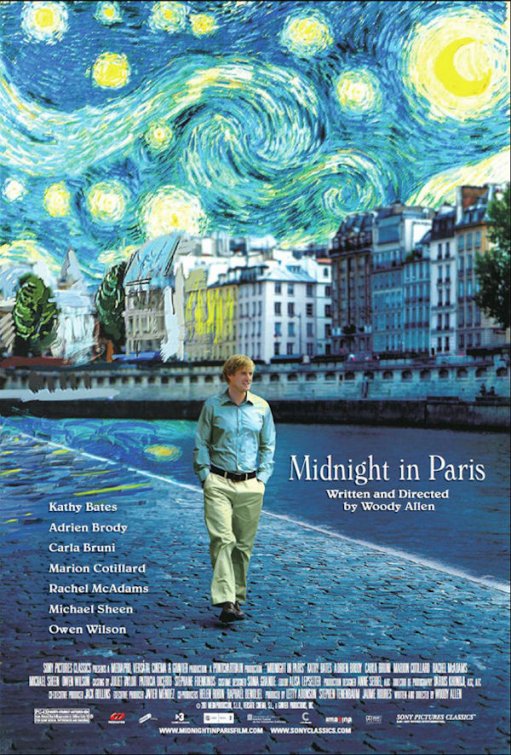Oh, Woody, ye of a thousand neuroses. You’ve gone and hit mine right on the nose: that romantic yearning to experience a particular place during a particular time that’s not my own. I’ve almost always felt a disconnect between the time and place where I grew up, the conservative port city of Jacksonville, Florida, and Woody Allen’s newest film, Midnight in Paris, spoke directly to that disconnect and its resultant desire:
To have been in Paris as the Jazz Age unfolded, black American expatriates providing the soundtrack that literary luminaries lived and loved by. Or over in burgeoning Berlin, when every artform known to humankind flourished in unbridled creativity and “divine decadence” during the Weimar Republic. To have hob-nobbed with our people’s best and brightest during the Harlem Renaissance of the 30s, or at the same time, rolled the dice in the casinos and opium dens of salacious Shanghai. To have been a part of on-and-popping LA in the 1940s, with Hollywood and “The War” leading SoCal’s economic boom; or in 1950s Havana, which rivaled Rome for La Dolce Vita. To have swung through the youth explosion in 60s London, and then grown out the ‘fro and got funky in chaotic, melodic 70s oil boomtowns Caracas and Lagos. To have dodged bullets for multilingual street culture in the vice-ridden Miami of the 80s and made a name for myself in the booming New York of the 90s. I know, I know…segregation and Giuliani and whatnot; it’s all fantasy isn’t it? And I am, increasingly, a creature of the 20th century.
But those times, when culture and commerce conspired to make those cities great, are happening right now in other cities – in São Paulo, in Bangkok, in Johannesburg, in Dubai – and the history that gave us Zora and Fela, Hayworth and Fellini, Crockett and Tubbs (seriously!) is what informs our current travels and the way we interact with present times and present places. And I don’t think honoring the past means being in denial of the present or avoiding the future. To the contrary, I think it allows previous greatness to feed our own.
So go get lost at Midnight in Paris, then lose yourself in the pages of William Boyd’s Any Human Heart, a phenomenal novel about a writer that lived through both World Wars, partied with Prince David and Mrs. Simpson, chilled with Ernest Hemingway and Ian Fleming, and subsisted on dog food in his later years. I wouldn’t doubt that Woody read it himself.
“What’s past is prologue.”
-William Shakespeare
Please tweet your comments @FlyBrother, or email me (see About page). And don’t forget to “like” me on Facebook!

